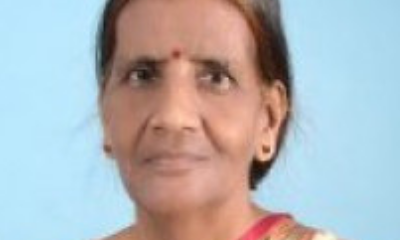Amrita Bharati (b.1939) is one of the most gifted and prolific female poets of her generation: she has written seven books of poetry and a volume of prose. Yet her name has no currency in Hindi poetic circles, or in western scholarship: there are no studies of her poetry and some of her collections are out of print.
This sentencing to silence seems astounding to anyone who has encountered Amrita Bharati’s unique poetic world. Her poetry is a witness to a complex spiritual journey which takes her from a land of intense existential angst, agony and anger to a refuge of serenity where ‘the mind stops’ and the anguished protagonist finds herself and ‘Him’. The visionary power of her poetry is all the more astounding as she treads totally new ground. Unlike her main predecessor – Mahadevi Verma – whose poetic “I” is a stylised, idealised image of the eternal woman in love, a product of the poet’s imagination rather than a reflection of her experience – Amrita Bharati has the “courage to probe into [the] inner world, and to make it public property”.
Amrita Bharati’s poetry is undoubtedly informed by her studies of Sanskrit (she did an MA and a PhD in Sanskrit at Benares Hindu University) and her intimate knowledge of Sri Aurobindo’s work (she has translated several of his poems in Hindi). Her poems contain numerous references to Vedantic ideas, Tantric images and Krishna bhakti.
The critic Nirmal Verma said of her, ‘Amrita Bharati is probably the most alone signature on the slate of contemporary Hindi poetry. Alone and unique.’
Lucy Rosenstein

